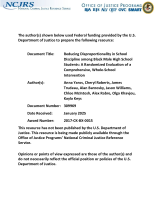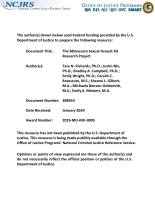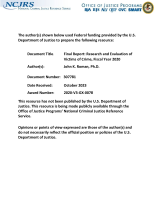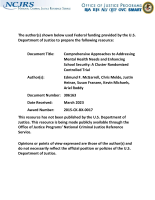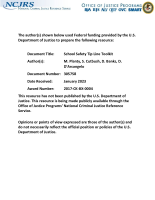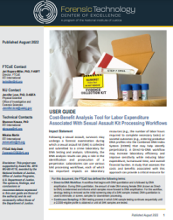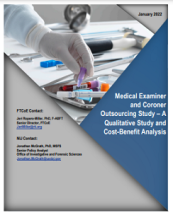Cost-benefit analysis
Reducing Disproportionality in School Discipline among Black Male High School Students: A Randomized Evaluation of a Comprehensive, Whole-School Intervention
MEASUREMENT OF POLICE OUTPUT - CONCEPTUAL ISSUES AND ALTERNATIVE APPROACHES
Evaluating the Effectiveness of a Community-led, School-based Secure Firearm Storage Campaign in Michigan
The potential of hybridization capture to permit species identification in challenging leathers
Implementation Strategies: Next Generation Sequencing for DNA Analysis
Webinar Transcript: NIJ FY 24 Research and Evaluation on the Impact of Technologies for Forensic Science Applications
This webinar provided information about the "FY 24 Research and Evaluation on the Impact of Technologies for Forensic Science Applications" solicitation. NIJ seeks applications for funding for proposals to study how adopted technologies with a forensic science application impact criminal justice systems, how the implementation of forensic laboratory...



